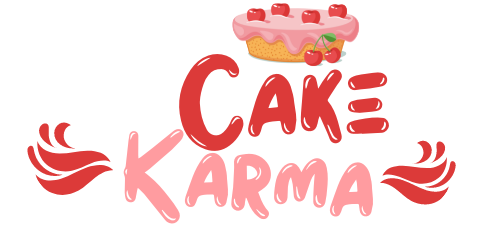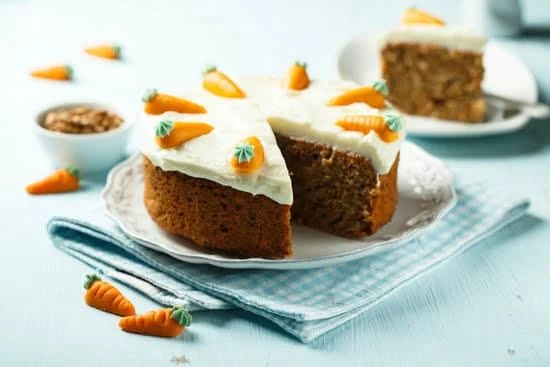Are you interested in a career as a cake decorator? If so, you may be wondering: how do you become a cake decorator? Cake decorating is both a fun and rewarding career choice for those with artistic talents and a passion for baking. In this article, we will explore the world of cake decorating and the steps you can take to turn your passion into a profession.
Cake decorating is the art of making cakes visually appealing through various techniques such as icing, piping, and fondant work. It’s a creative and fulfilling career that allows individuals to showcase their artistic abilities while also indulging in their love for baking. Whether it’s for weddings, birthdays, or other special occasions, cake decorators play an essential role in creating memorable experiences through their edible works of art.
To become a successful cake decorator, it’s crucial to develop strong artistic and creative skills. These skills are essential in bringing your ideas to life and creating beautiful designs that will impress clients.
Learning the basics of tools and techniques for cake decorating is also important, as it lays the foundation for mastering more complex designs and styles. Whether it’s learning how to properly use icing tips or understanding different types of fondant, having a solid grasp of these fundamentals is key in becoming a proficient cake decorator.
The Importance of Developing Artistic and Creative Skills
Becoming a successful cake decorator requires more than just the ability to follow a recipe and frost a cake. It also demands a high level of creativity and artistic skill. The importance of developing these skills cannot be overstated, as they are the foundation of creating visually stunning and unique cake designs that will set you apart in the competitive world of cake decorating.
Artistic and creative skills can be developed through various means, including practicing drawing and painting, taking art classes, and seeking inspiration from different sources such as nature, fashion, architecture, and other forms of art. It’s also important to have a keen eye for detail and color coordination, as these elements play a crucial role in creating aesthetically pleasing cake designs.
In addition to honing your artistic abilities, it’s essential to cultivate your creative thinking and problem-solving skills. This involves being open to new ideas, experimenting with different techniques and materials, and continuously challenging yourself to push the boundaries of traditional cake decorating. By doing so, you’ll be able to offer fresh and innovative designs to your clients, making you a sought-after professional in the industry.
| Developing Artistic Skills | Creative Thinking |
|---|---|
| Practicing drawing and painting | Being open to new ideas |
| Taking art classes | Experimenting with different techniques |
| Seeking inspiration from various sources | Challenging oneself to push boundaries |
Learning the Basics
Cake decorating is a form of art that requires not only creativity but also the appropriate tools and techniques to bring your vision to life. So, how do you become a cake decorator? One of the first steps is familiarizing yourself with the essential tools and mastering fundamental decorating techniques.
Tools such as piping bags, tips, fondant smoothers, offset spatulas, and turntables are indispensable for any cake decorator. It’s important to invest in quality products to achieve professional-looking results. Additionally, familiarize yourself with different types of icing, such as buttercream and royal icing, as well as fondant and gum paste for more intricate designs.
In terms of techniques, learning how to properly crumb coat a cake, create smooth icing surfaces, pipe borders and designs, and work with fondant are fundamental skills that every cake decorator should master. There are numerous resources available for beginners, including online tutorials, books, and even local classes or workshops.
Mastering the basics of cake decorating tools and techniques will serve as a solid foundation for your career in this field. Whether you plan on pursuing formal education or training or learning through practical experience, having a strong understanding of these fundamentals will be invaluable. Remember that practice makes perfect, so don’t be afraid to experiment and continue honing your skills as you progress in your journey as a cake decorator.
| Tools | Techniques |
|---|---|
| Piping bags | Crumb coating |
| Fondant smoothers | Smooth icing surfaces |
| Offset spatulas | Piping borders and designs |
| Turntables | Working with fondant |
The Role of Formal Education and Training in Becoming a Professional Cake Decorator
Formal education and training play a crucial role in becoming a professional cake decorator. While some individuals may have a natural talent for decorating, obtaining formal education can provide a solid foundation and help hone the necessary skills to succeed in this competitive industry.
Here are some key considerations for those looking to pursue formal education and training in cake decorating:
- Culinary School: Attending a reputable culinary school that offers pastry arts programs can provide comprehensive training in cake decorating. Students will learn about different types of icing, techniques for creating various designs, and the art of working with fondant.
- Specialized Courses and Workshops: Many culinary schools and community colleges offer short-term courses or workshops specifically focused on cake decorating. These can be beneficial for individuals who may not want to commit to a full degree program but still want to develop their skills.
- Certification Programs: Obtaining certification from professional organizations such as the American Culinary Federation or the Retail Bakers of America can enhance credibility and demonstrate a commitment to excellence in the field of cake decorating.
By pursuing formal education and training, aspiring cake decorators can gain valuable knowledge and hands-on experience that will prepare them for a successful career in the industry.
In addition to formal education, individuals should also seek out opportunities for practical experience through internships or apprenticeships at bakeries or pastry shops. This real-world experience can further enhance skills and provide insight into the day-to-day responsibilities of a professional cake decorator.
Gaining Practical Experience Through Internships and Apprenticeships
Benefits of Internships and Apprenticeships
Internships and apprenticeships are invaluable experiences for aspiring cake decorators. These opportunities provide hands-on training and allow individuals to work closely with experienced professionals in the field. By working alongside seasoned cake decorators, students can learn new techniques, develop their skills, and gain insight into the day-to-day operations of a professional bakery or cake decorating business.
Finding the Right Program
There are various options available for individuals seeking internships or apprenticeships in cake decorating. Many culinary schools and baking programs offer placement services to help students find opportunities to gain practical experience. Additionally, aspiring cake decorators can reach out directly to local bakeries, pastry shops, or cake decorating businesses to inquire about internship or apprenticeship openings.
Making the Most of the Experience
Once an internship or apprenticeship is secured, it’s important for aspiring cake decorators to make the most of the experience. This can include actively seeking feedback from mentors, observing and learning different techniques, and taking on as much responsibility as possible. By demonstrating a strong work ethic and eagerness to learn, individuals can make a lasting impression on their mentors and gain valuable skills that will benefit them in their future careers as cake decorators.
Ultimately, gaining practical experience through internships and apprenticeships is a crucial step in becoming a successful cake decorator. These experiences not only provide essential training but also help individuals build a network within the industry. With dedication and hard work during these opportunities, aspiring cake decorators can take significant strides toward achieving their career goals.
Building a Portfolio and Establishing a Personal Brand as a Cake Decorator
One of the key steps in becoming a successful cake decorator is building a portfolio that showcases your skills and style. A portfolio should include photographs of all the cakes you have decorated, highlighting your best work. It’s important to show diversity in your designs and demonstrate your ability to work with different themes, colors, and techniques. This will help potential clients or employers get a sense of your range and creativity.
Establishing a personal brand as a cake decorator is also essential for standing out in this competitive field. Your personal brand should reflect your unique style, creative vision, and the quality of your work. This can be achieved through consistent branding elements such as a signature decorating style, logo, color scheme, or even a unique selling proposition that sets you apart from other cake decorators.
In addition to showcasing your work and establishing a personal brand, it’s important to actively promote yourself as a cake decorator. This may include creating an online presence through social media platforms and professional websites, attending industry events and networking opportunities, and collaborating with other professionals in the food and hospitality industry. These marketing efforts will help you reach potential clients or employers and build a solid reputation as a skilled cake decorator in the industry.
Marketing and Networking Tips for Aspiring Cake Decorators
Becoming a successful cake decorator requires not only mastering the artistry of decorating but also the ability to market and network effectively. Here are some tips for aspiring cake decorators on how to effectively market and network in the industry:
- Build a strong online presence: In today’s digital age, having a professional website and active social media accounts is crucial for showcasing your work and reaching potential clients. Use platforms such as Instagram, Facebook, and Pinterest to share your portfolio, engage with followers, and attract new customers.
- Collaborate with other professionals: Networking with other professionals in the baking and event planning industries can lead to valuable partnerships and referrals. Establish relationships with wedding planners, caterers, and photographers who can connect you with clients in need of your services.
- Showcase your skills at events: Participating in local food festivals, wedding expos, or community events can provide an opportunity to showcase your talents to a wide audience. Displaying eye-catching cake designs and offering samples can leave a lasting impression on potential customers.
In addition to marketing efforts, it’s important for aspiring cake decorators to focus on building a strong professional network within the industry through networking:
- Attend industry events: Connecting with other cake decorators at industry events, seminars, or workshops can provide invaluable insights and opportunities for collaboration. It also allows you to stay updated on current trends and best practices within the industry.
- Join professional organizations: Consider joining associations or groups dedicated to baking or cake decorating. These organizations often offer networking events, educational resources, and certification programs that can enhance your credibility as a professional in the field.
- Seek mentorship opportunities: Building relationships with experienced cake decorators who are willing to offer guidance and advice can be instrumental in advancing your career. Seek out mentorship opportunities through local baking schools or industry contacts.
By implementing these marketing strategies and networking tips, aspiring cake decorators can effectively promote their skills and establish valuable connections within the industry – ultimately paving the way for a successful career in cake decorating.
The Rewards and Challenges of a Career in Cake Decorating
The Rewards
Becoming a professional cake decorator can be incredibly rewarding. From seeing the joy on your clients’ faces when they see your beautifully decorated cakes to the satisfaction of creating edible works of art, there are plenty of rewards to enjoy in this career. As a cake decorator, you have the opportunity to express your creativity and artistic abilities through your work, bringing happiness to others through your delicious creations.
The Challenges
However, it’s important to acknowledge that a career in cake decorating also comes with its fair share of challenges. It requires long hours spent standing and working with intricate details, which can be physically demanding. Additionally, meeting deadlines and managing client expectations can be stressful at times. It’s essential for aspiring cake decorators to be prepared for these challenges and develop resilience in order to succeed in this competitive industry.
Balancing Passion and Business
One of the key challenges for many cake decorators is finding the balance between their passion for creating beautiful cakes and the business side of their craft. In order to have a successful career, it’s crucial to not only possess exceptional decorating skills but also have a good understanding of marketing, customer service, and financial management. Finding this balance is essential for building a sustainable career as a professional cake decorator.
Overall, while there are certainly challenges involved in pursuing a career in cake decorating, the potential rewards make it an attractive option for those with a passion for baking and design. By being aware of both the rewards and challenges ahead, aspiring cake decorators can better prepare themselves for the journey towards becoming successful professionals in this creative field.
Conclusion
In conclusion, becoming a successful cake decorator requires a combination of artistic talent, technical skills, and business savvy. By developing your creative abilities and mastering the tools and techniques of cake decorating, you can lay the foundation for a rewarding career in this field. Whether you choose to pursue formal education and training or gain practical experience through internships and apprenticeships, it is essential to continuously refine your craft and build a diverse portfolio that showcases your unique style.
Furthermore, establishing a personal brand as a cake decorator will set you apart in a competitive market. Consider creating a strong online presence through social media platforms and a professional website to showcase your work and attract potential clients. Additionally, don’t underestimate the power of networking within the industry – connecting with other professionals, attending industry events, and seeking mentorship can open doors for new opportunities.
It’s important to note that while the journey towards becoming a successful cake decorator may present its challenges, the rewards are abundant for those who are passionate and dedicated to their craft. So if you have been asking yourself “how do you become a cake decorator“, remember that patience, perseverance, and continuous learning are key as you embark on this exciting career path.
With determination and hard work, you can turn your passion for cake decorating into a fulfilling profession.
Frequently Asked Questions
How Do I Start Being a Cake Decorator?
Starting a career as a cake decorator typically involves getting some basic training in baking and decorating techniques. This can be achieved through culinary arts programs, workshops, or online courses. It’s also important to practice and refine your skills by creating cakes for friends and family or even volunteering to make cakes for events.
What Qualifications Do You Need to Be a Cake Decorator?
In most cases, there are no formal qualifications required to become a cake decorator. However, having a certificate or degree in culinary arts or pastry arts can definitely enhance your credentials. Additionally, obtaining a food handling certification and familiarizing yourself with health and safety regulations is essential when working in this field.
How Long Does It Take to Become a Professional Cake Decorator?
The time it takes to become a professional cake decorator varies depending on the individual’s level of commitment and the type of training they pursue.
Some people may start working professionally after completing a short-term training program, while others may spend several years gaining experience through apprenticeships or entry-level positions before becoming recognized as professionals in the industry.

Welcome to our cake decorating blog! My name is Destiny Flores, and I am the proud owner of a cake decorating business named Cake Karma. Our mission is to provide delicious, beautiful cakes for all occasions. We specialize in creating custom cakes that are tailored specifically to each customer’s individual needs and tastes.





